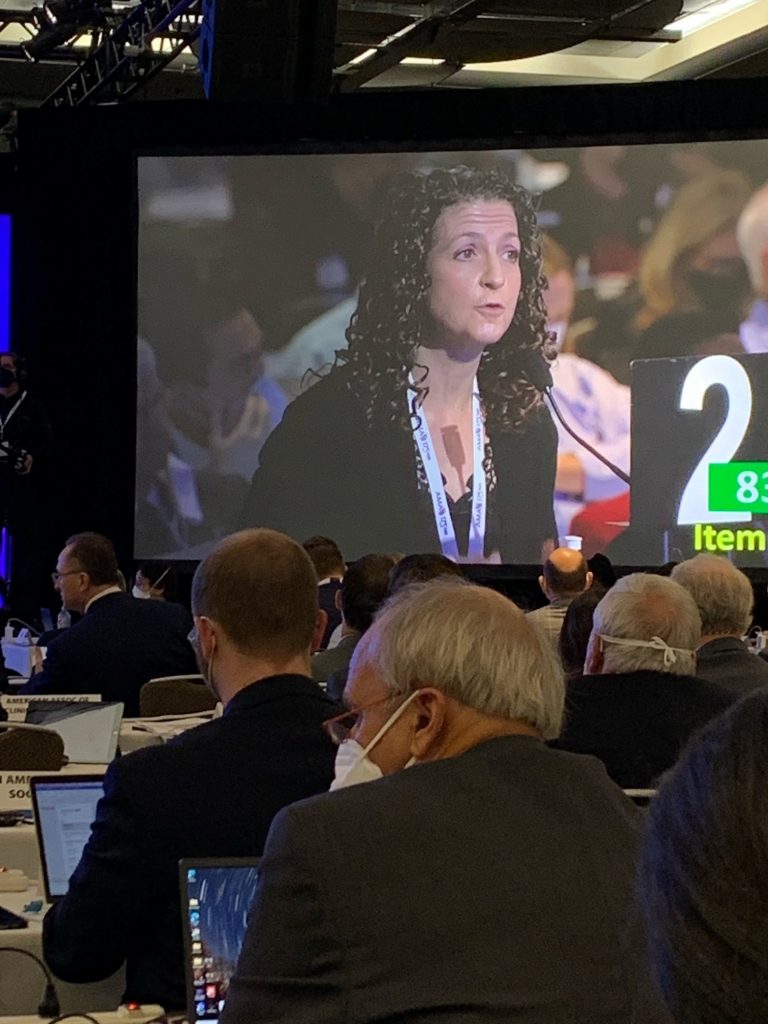On June 10 – 15, the American Medical Association (AMA) House of Delegates met to establish policy positions on topics of importance to healthcare providers and patients. Endocrine Society delegates Amanda Bell, MD, and Palak Choksi, MD, successfully advocated for several of our key policy priorities, including insulin affordability, obesity, women’s health, climate change, and transgender care.
The Society, which has two voting members in the House of Medicine, co-sponsored a resolution to address the nationwide obesity epidemic. The resolution on obesity would create an obesity task force to evaluate and disseminate relevant scientific evidence to healthcare clinicians, other providers, and the public. One particular area the task force would address is the lack of insurance coverage for evidence-based obesity treatments.

The Endocrine Society has advocated for expanded access to obesity treatments and supports the Treat and Reduce Obesity Act which would allow Medicare to cover FDA-approved anti-obesity medications. This resolution was referred to the AMA Board of Trustees for further action. We also co-sponsored a resolution supporting an insulin co-pay cap for insured patients. The resolution, which was adopted by the House of Delegates, added language to existing AMA insulin affordability policy in support of state and national efforts to limit the out-of-pocket costs incurred by insured patients for prescribed insulin. The Society supports a $35 insulin co-pay cap for people on Medicare and private insurance.
The Endocrine Society is opposed to government interference in medical decisions and policies that take away access to reproductive healthcare and use of hormonal treatments.
Another key focus at the meeting was protecting reproductive rights and access to transgender care. We supported a resolution passed by the House of Medicine recognizing that it is a violation of human rights when government intrudes into medicine and impedes access to safe, evidence-based reproductive health services. This resolution was passed in response to the increasing threat of government intrusion of the patient-provider relationship related to reproductive health. The Endocrine Society is opposed to government interference in medical decisions and policies that take away access to reproductive healthcare and use of hormonal treatments. The Society also worked to advance a resolution to protect the rights of gender diverse populations. This resolution supports shared decision making between gender diverse individuals their families, their primary care physician, and a multidisciplinary team of physicians and other healthcare professionals including endocrinologists.

Finally, we worked to pass a resolution declaring climate change a public health crisis which threatens the health and well-being of all individuals. This resolution ensures that the AMA will advocate for policies that reduce greenhouse gas emissions and support clean energy solutions. The Society has made climate change a key priority area. We have worked to educate the public about the health effects of global warming and have supported increased research on the impact of climate change on the endocrine system.
The AMA House of Delegates, which is the legislative and policy-making body of the AMA, meets twice a year to consider changes to AMA policy. This year’s annual meeting took place on the same weekend as ENDO 2022. A very special thanks to our delegates, Bell and Choksi, for attending the AMA meeting and representing the Society.

